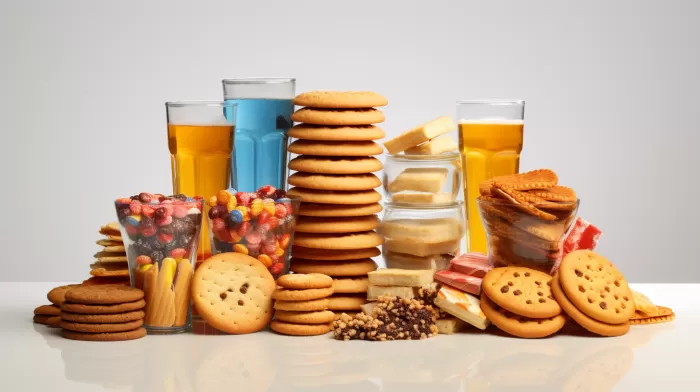Americans are consuming a startling 150 pounds of a certain food each year, placing their liver at risk of a leading cause of liver failure. Fatty liver disease is affecting more than 20% of the U.S. population, and it’s caused by one, main culprit: too much sugar. It doesn’t matter if it’s in the form of high fructose sugar (HFCS) found in soft drinks or sucrose in cookies (a combination of fructose and glucose). Either way, intake of these sugars puts individuals at risk of developing nonalcoholic fatty liver disease. The increasing rate of consumption is an alarming cause for concern as it’s estimated that 10% of children are now affected by this problem.
A Widespread Problem
Although many point to HFCS as the main contributor to this epidemic, research shows that any type of refined carbohydrate can lead to liver difficulties. According to John Sievenpiper, “[HFCS] behaves no differently than glucose or refined starches. It is only when you consume excess calories in the form of fructose that you see a signal for harm but no more harm than if you consume excess calories as glucose.” This means that you don’t need to focus only on avoiding HFCS but rather cut down on the overall consumption of added sugars in your diet.
The primary issue we face is that we’re addicted to processed foods like candy, cookies, cakes, bread, and crackers. These foods are packed with added sugars and our livers are struggling to cope. As Sievenpiper explains, “the debate over the role of fructose in obesity, fatty liver, and other metabolic diseases has distracted us from the issue of overconsumption. Our data should serve to remind people that the excess calories, whether they are from fructose or other sources, are the issue.”
Managing and Preventing Fatty Liver Disease
While cutting back on your sugar intake is essential, there are other important steps you can take to protect your liver from fatty liver disease:
- Maintain a healthy weight: Obesity is a common factor linked to fatty liver disease. Achieving and maintaining a healthy weight, through a balanced diet and regular physical activity, are crucial to liver health.
-
Limit alcohol consumption: Excessive alcohol intake is toxic to your liver cells and can cause scarring, known as cirrhosis, which can lead to liver failure or cancer. Stick to a moderate level of alcohol consumption or avoid it altogether.
-
Eat an antioxidant-rich diet: Antioxidants found in fruits and vegetables such as berries, green leafy vegetables, nuts, and seeds, have been proven to help protect the liver and reduce inflammation.
-
Focus on balanced nutrition: Incorporate complex carbohydrates, lean proteins, and healthy fats in your diet to maintain liver health and keep you energized throughout the day.
-
Stay Hydrated: Drinking enough water is essential for flushing toxins out of your body. This, in turn, helps to decrease inflammation and promote optimal liver function. Aim for at least 8 cups (64 ounces) of water per day.
The Importance of Liver Health
The liver is one of your body’s most essential organs, responsible for processing nutrients, producing proteins, deactivating harmful substances, and aiding in digestion. It also plays a crucial role in managing hormone levels and removing toxins from your body, making it an imperative aspect of overall health. Maintaining optimal liver function is necessary for regulating metabolism, promoting optimal digestion, and preventing the growth of harmful substances.
In conclusion, we must act now to protect our liver from the dangers of too much sugar consumption, which has proven to be a growing problem, especially in the United States. While it might seem difficult, staying diligent with your diet by keeping sugar in check and promoting liver health allows you to prevent nonalcoholic fatty liver disease and preserve your overall health. Remember always to focus on consuming a balanced and nutrient-rich diet, maintaining a healthy weight, engaging in regular exercise, and keeping alcohol consumption in moderation. By doing so, you can protect your liver from the harmful effects of sugar, reduce inflammation, and maintain your health.



